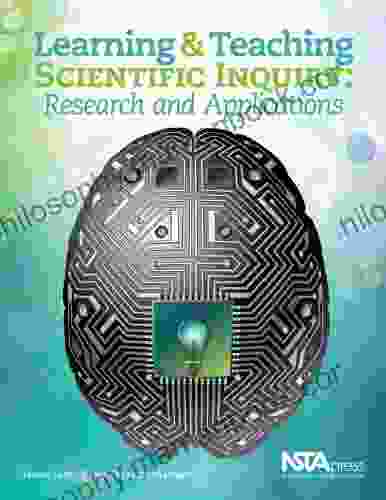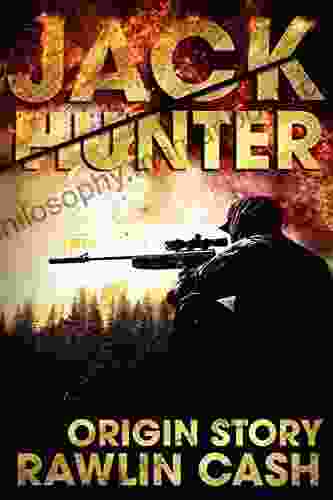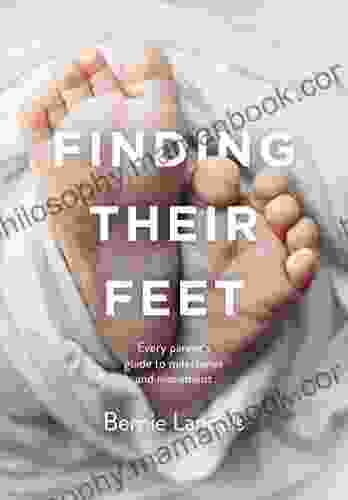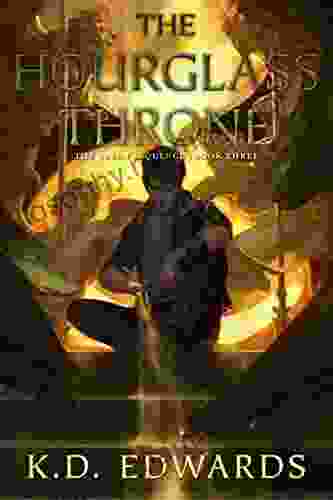Learning and Teaching Through Scientific Inquiry: A Comprehensive Guide for Educators

5 out of 5
| Language | : | English |
| File size | : | 3539 KB |
| Text-to-Speech | : | Enabled |
| Screen Reader | : | Supported |
| Enhanced typesetting | : | Enabled |
| Word Wise | : | Enabled |
| Print length | : | 323 pages |
| Lending | : | Enabled |
In today's rapidly evolving world, it is imperative for learners to possess the skills necessary to navigate complex challenges and make informed decisions. Scientific inquiry, an integral aspect of STEM education, empowers students with a foundational understanding of the natural world while fostering critical thinking, problem-solving, and innovation.
This comprehensive guide provides educators with a comprehensive overview of scientific inquiry and its profound implications for learning and teaching. We explore the benefits of inquiry-based instruction, outline the various stages involved, and offer practical strategies for effective implementation. Whether you're a novice or an experienced teacher, this guide will equip you with the knowledge and skills necessary to transform your classroom into a vibrant hub of scientific exploration.
Benefits of Learning and Teaching Through Scientific Inquiry
- Enhanced understanding of science concepts: Inquiry-based learning fosters a deep comprehension of scientific principles by actively engaging students in the process of discovery and knowledge construction.
- Development of critical thinking skills: Through scientific inquiry, students learn to analyze evidence, draw inferences, and construct logical arguments, enhancing their critical thinking abilities.
- Improved problem-solving skills: By tackling real-world problems and designing their own investigations, students develop essential problem-solving skills that are applicable in both academic and non-academic settings.
- Cultivation of scientific curiosity and creativity: Inquiry-based learning sparks students' natural curiosity and encourages them to explore the world around them with a questioning mindset, fostering a lifelong love for science.
- Increased motivation and engagement: Hands-on, experiential learning experiences that are characteristic of scientific inquiry captivate students' attention and enhance their motivation to learn.
Stages of Scientific Inquiry
The scientific inquiry process typically involves the following stages:
- Observation: Students make careful observations of their surroundings, asking questions and gathering data.
- Question: Based on their observations, students formulate testable questions that guide their investigation.
- Hypothesis: Students develop a hypothesis, a proposed explanation for their observations.
- Experimentation: Students design and conduct experiments to test their hypothesis, collecting and analyzing data.
- Analysis: Students interpret their data, drawing s about their hypothesis and the question they initially posed.
- Communication: Students present their findings and communicate their s to others, sharing their knowledge and insights.
Strategies for Effective Implementation
- Create a supportive learning environment: Foster a classroom culture where students feel comfortable asking questions, sharing ideas, and taking risks.
- Provide hands-on experiences: Engage students in authentic, hands-on investigations that allow them to explore concepts in a tangible and meaningful way.
- Use open-ended questions: Challenge students to think critically and develop their own lines of inquiry by posing open-ended questions that encourage exploration.
- Facilitate student-led discussions: Allow students to lead discussions and present their findings, fostering their confidence and ownership of their learning.
- Incorporate real-world connections: Relate scientific concepts to real-world phenomena and applications, making learning more relevant and engaging.
- Provide regular feedback: Offer constructive feedback that supports students' learning and encourages them to refine their investigations.
Scientific inquiry is a powerful pedagogical approach that transforms learning into an active, engaging, and meaningful experience. It empowers students with essential skills for success in the 21st century and beyond. By embracing the principles and practices of scientific inquiry, educators can create classrooms that foster a deep understanding of science, critical thinking, problem-solving, and lifelong learning.
We encourage all educators to embrace the transformative power of scientific inquiry and to inspire their students to become curious, critical, and creative thinkers. By nurturing a love for science and equipping students with the skills to navigate the unknown, we empower them to make informed decisions, solve complex problems, and contribute to a more enlightened and sustainable future.
5 out of 5
| Language | : | English |
| File size | : | 3539 KB |
| Text-to-Speech | : | Enabled |
| Screen Reader | : | Supported |
| Enhanced typesetting | : | Enabled |
| Word Wise | : | Enabled |
| Print length | : | 323 pages |
| Lending | : | Enabled |
Do you want to contribute by writing guest posts on this blog?
Please contact us and send us a resume of previous articles that you have written.
 Top Book
Top Book Novel
Novel Fiction
Fiction Nonfiction
Nonfiction Literature
Literature Paperback
Paperback Hardcover
Hardcover E-book
E-book Audiobook
Audiobook Bestseller
Bestseller Classic
Classic Mystery
Mystery Thriller
Thriller Romance
Romance Fantasy
Fantasy Science Fiction
Science Fiction Biography
Biography Memoir
Memoir Autobiography
Autobiography Poetry
Poetry Drama
Drama Historical Fiction
Historical Fiction Self-help
Self-help Young Adult
Young Adult Childrens Books
Childrens Books Graphic Novel
Graphic Novel Anthology
Anthology Series
Series Encyclopedia
Encyclopedia Reference
Reference Guidebook
Guidebook Textbook
Textbook Workbook
Workbook Journal
Journal Diary
Diary Manuscript
Manuscript Folio
Folio Pulp Fiction
Pulp Fiction Short Stories
Short Stories Fairy Tales
Fairy Tales Fables
Fables Mythology
Mythology Philosophy
Philosophy Religion
Religion Spirituality
Spirituality Essays
Essays Critique
Critique Commentary
Commentary Glossary
Glossary Bibliography
Bibliography Index
Index Table of Contents
Table of Contents Preface
Preface Introduction
Introduction Foreword
Foreword Afterword
Afterword Appendices
Appendices Annotations
Annotations Footnotes
Footnotes Epilogue
Epilogue Prologue
Prologue Sir Reed A Lot
Sir Reed A Lot Mary A Robinson
Mary A Robinson Kasey Jueds
Kasey Jueds Eric Johnson
Eric Johnson Peter Schweighofer
Peter Schweighofer Herbert Wolverson
Herbert Wolverson Eileen Bailey
Eileen Bailey June Jordan
June Jordan Chetan Bhagat
Chetan Bhagat John Maeda
John Maeda Amanda Deibert
Amanda Deibert Samuel Cord Stier
Samuel Cord Stier Bart Hepker
Bart Hepker Philip Matyszak
Philip Matyszak Andreas Rasche
Andreas Rasche Karen Mathis
Karen Mathis Agnes Hsu
Agnes Hsu Michael Salomon
Michael Salomon Ian Christopher
Ian Christopher Carolina Mac
Carolina Mac
Light bulbAdvertise smarter! Our strategic ad space ensures maximum exposure. Reserve your spot today!

 Leo TolstoyHomestead Harem: Sam Hunter's Innovative Approach to Sustainable Living and...
Leo TolstoyHomestead Harem: Sam Hunter's Innovative Approach to Sustainable Living and...
 Brayden ReedLighthouse Boutique Tissue Box Plastic Canvas Pattern: A Beginner's Guide to...
Brayden ReedLighthouse Boutique Tissue Box Plastic Canvas Pattern: A Beginner's Guide to... Ethan GrayFollow ·19.3k
Ethan GrayFollow ·19.3k Cody BlairFollow ·9k
Cody BlairFollow ·9k Benji PowellFollow ·13.8k
Benji PowellFollow ·13.8k Brayden ReedFollow ·19.7k
Brayden ReedFollow ·19.7k Roberto BolañoFollow ·18.3k
Roberto BolañoFollow ·18.3k Derrick HughesFollow ·2.5k
Derrick HughesFollow ·2.5k Jaden CoxFollow ·16.2k
Jaden CoxFollow ·16.2k Keith CoxFollow ·5.1k
Keith CoxFollow ·5.1k
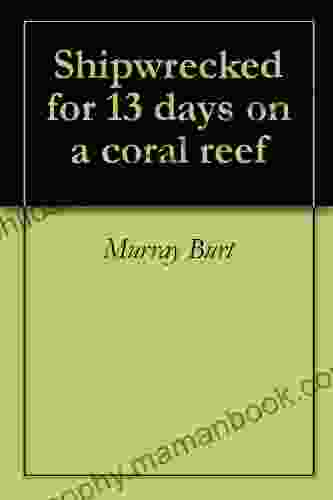
 Ignacio Hayes
Ignacio HayesShipwrecked For 13 Days On Coral Reef: A Tale of Survival...
In the vast expanse of the...
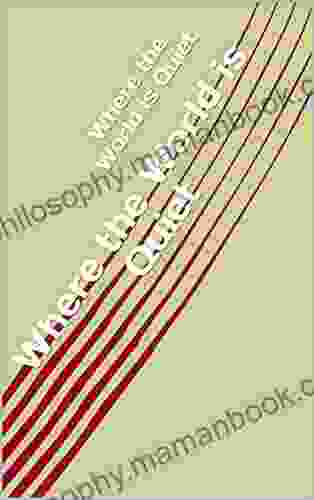
 Gerald Parker
Gerald ParkerWhere the World Is Quiet: Delving into a Realm of Serene...
A Tapestry of Serenity In the tapestry...

 Charles Bukowski
Charles BukowskiPloughshares Winter 2009: Guest Edited by Tony Hoagland
Ploughshares...
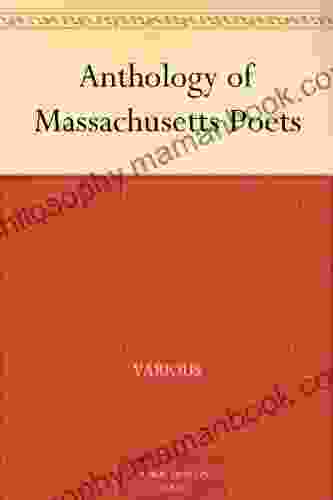
 Rubén Darío
Rubén DaríoAnthology of Massachusetts Poets: William Stanley...
William Stanley...
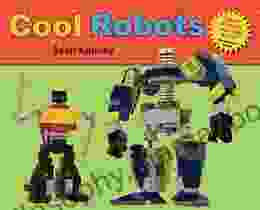
 Jason Hayes
Jason HayesSean Kenney's Mesmerizing Robot Masterpieces: A Journey...
In a realm where imagination meets...

 Terence Nelson
Terence NelsonUnveiling the Elite Force: The Commander Men of Hidden...
In the shadows of society, where justice...
5 out of 5
| Language | : | English |
| File size | : | 3539 KB |
| Text-to-Speech | : | Enabled |
| Screen Reader | : | Supported |
| Enhanced typesetting | : | Enabled |
| Word Wise | : | Enabled |
| Print length | : | 323 pages |
| Lending | : | Enabled |


